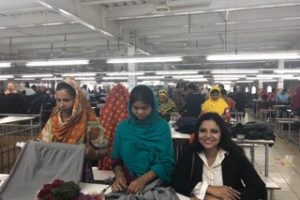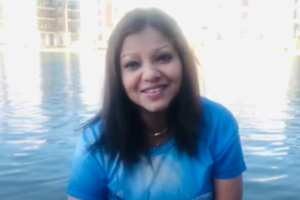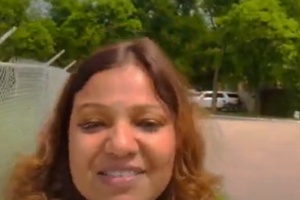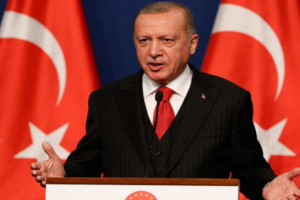Chicago became the largest American city ever to elect a black woman as its mayor as voters on Tuesday chose Lori Lightfoot, a former prosecutor, to replace Rahm Emanuel. When she takes office in May, Ms. Lightfoot also will be the city’s first openly gay mayor.
Ms. Lightfoot, who has never held elective office, easily won the race, overwhelming a better-known, longtime politician and turning her outsider status into an asset in a city with a history of corruption and insider dealings. Ms. Lightfoot, 56, beat Toni Preckwinkle, a former alderman who is president of the Cook County Board and who had for years been viewed as a highly formidable candidate for mayor.
For Chicago, Ms. Lightfoot’s win signaled a notable shift in the mood of voters and a rejection of an entrenched political culture that has more often rewarded insiders and dismissed unknowns. For many voters, the notion that someone with no political ties might become mayor of Chicago seemed an eye-opening counterpoint to a decades-old, often-repeated mantra about this city’s political order: “We don’t want nobody nobody sent.”
As Ms. Lightfoot took the stage in a downtown ballroom on Tuesday night, she acknowledged the unlikeliness of her resounding victory, in which she appeared to win all 50 of Chicago’s wards. “We were up against powerful interests, a powerful machine and a powerful mayor,” she said. “Nobody gave us much of a chance.”
For some of Ms. Lightfoot’s supporters, the significance of her victory was monumental, going beyond a single candidate or city. “Look, nothing personal, but it’s not the good old boys club anymore,” said Kimberly Smith, 40, who was born and raised on the South Side and said she thought the election marked a turning point in Chicago politics. “I feel empowered.”
National advocates for gay rights celebrated Ms. Lightfoot’s win. “Now young queer women and women of color can see themselves reflected in a position of major political leadership,” said Stephanie Sandberg, executive director of LPAC, an organization that works to build the political power of L.G.B.T.Q. women.
Ms. Lightfoot’s rise was unexpected only weeks ago, when 13 other candidates were vying to run the nation’s third-largest city, many of them far better known — with decades of experience in Chicago politics and with dynastic names like Daley. Ms. Lightfoot is a lawyer who has served in appointed positions, including as head of the Chicago Police Board and as a leader of a task force that issued a scathing report on relations between the Chicago police and black residents, but she was not widely known around the city until recent months.
Ms. Lightfoot — Chicago’s 56th mayor — arrives at a pivotal moment for a Democratic city that has for the past eight years been led by Mr. Emanuel, who surprised many residents when he chose not to seek re-election.
Chicago, a city of 2.7 million residents, is wrestling with dueling realities: Tech jobs and convention business have poured into its shimmering downtown while public schools have been shuttered on the South and West Sides, and thousands of black residents have moved away. Mr. Emanuel’s administration made strides to shore up the city’s fiscal woes but residents have complained about mounting taxes and fees. Chicago’s new mayor still must come up with an additional $1 billion in the next four years to continue pulling the city out of a pension crisis.
And the city says its crime problems have been improving over the past two years, recording about half as many murders this year as it did during the same period in 2016. Still, gun and gang violence are pervasive and the city had more than 550 homicides in 2018, more than in the nation’s two larger cities, New York and Los Angeles.
Abraham Lacy and his son Isaac took a selfie with Chicago mayoral candidate Toni Preckwinkle on Tuesday.
Race has often played an outsize role in politics in Chicago, which is essentially evenly split between white, black and Latino residents. On Tuesday, though, the contest between two African-American women scrambled the usual political calculus, or what one Chicagoan, Ra Joy, described as its habit of “tribal voting,” in which politicians count on support from voters of their own race.
In February, during the most crowded mayoral primary in city history, Ms. Lightfoot and Ms. Preckwinkle topped a far larger array of candidates of various ethnicities, races and genders, removing all the others from Tuesday’s runoff.
The US-Mexico border is a daily headline. A political football. And also home to millions of people. Every week for the next few months, we’ll bring you their stories, far from the tug-of-war of Washington politics.





















